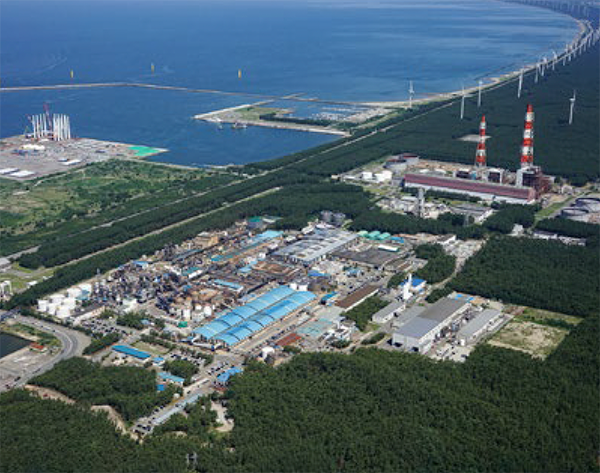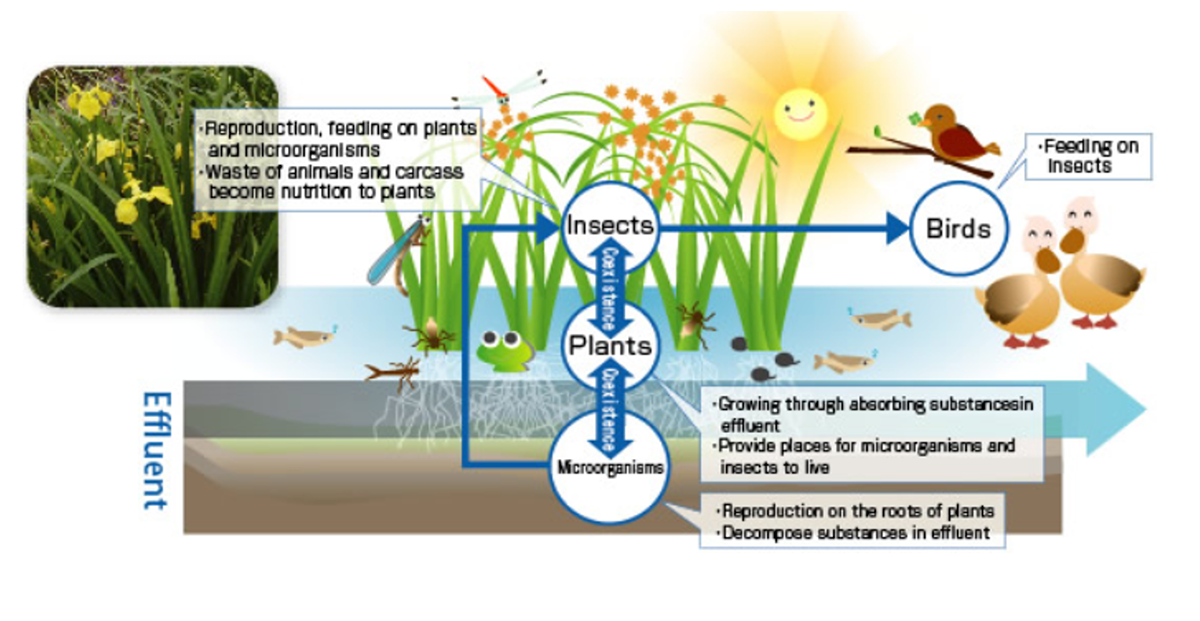The DOWA Group recognizes the impact of its business activities on the environment. We regard contribution to the establishment of a resource-recycling society through our core business and reduction of environmental burdens, such as prevention of environmental pollution in our own business, as important management issues. Under our basic environmental policy, we are continuously promoting group-wide initiatives. We also strive to preserve the natural environment through the reduction of pollutants and the proper disposal of waste.

Environment management activities are promoted in accordance with our Four Lines Model, which is our risk management system, in cooperation with the DOWA Holdings Environment & Safety Department, and operating companies and operating subsidiaries that carry out environmental conservation activities.
Additionally, the Sustainability Subcommittee, which discusses important sustainability issues for the entire Group, holds Groupwide discussions on environmental conservation. Furthermore, matters that the Sustainability Subcommittee considers important are reported to the Sustainability Committee, which is above the Sustainability Subcommittee, and important matters are reported to the Board of Directors.
|
Key Measures |
Indicators |
Targets |
|
Establishment of an environmental management system (Establish and maintain an ISO 14001- or EA21- compliant systems) |
Ratio of business locations operating under DOWA’s EHS-MS (environment, health, and safety management system) (At ISO-certified locations) |
100% (by March 31, 2025) |
|
Improvement of risk management (Minimize risk of environmental accidents and improve response capabilities) |
Number of environmental accidents |
0 |
The goal of the Midterm Plan 2024 is to establish management systems compliant with ISO 14001/EA21 at all major business sites by fiscal 2024, the final year of the plan. The rate of business establishments operating EHS-MS (Environment, Health and Safety Management Systems) that comply with the ISO standard by FY 2023 has reached 80%. In our transportation business, we have obtained Green Management certification to promote environmental conservation in trucking. We are promoting activities that lead to continuous environmental improvement through the PDCA cycle of our environmental management system.
Through such environmental management, the company aims to contribute to the creation of a resource-recycling society and to reduce the environmental impact of its own operations, including the prevention of environmental pollution.
The DOWA Group is promoting business activities while considering material balance by quantitatively determining the input of necessary resources and energy at each stage of the business life cycle as well as the output of CO2 and waste generated from these activities.
The DOWA Group’s impact on the atmosphere and water is greatly affected by the composition of waste received by the Environmental Management & Recycling Business. Therefore, we are working to reduce said impact by enhancing our management systems at each business location and implementing standards that are more stringent than national regulations.
Akita Zinc Co., Ltd. received the Director-General’s Award of the Tohoku Bureau of Economy, Trade and Industry under the Ministry of Economy, Trade and Industry’s 2021 Factory Greening Award Program (commonly known as the National Award for Factory Greening Program).Akita Zinc established in 1971, produces more than 200,000 tons of zinc ingots every year, making it the largest producer in Japan. The company also operates a smelter with low environmental impact that generates almost no waste. During its construction, it was positioned as a smelter amid greenery, and builders devised ways to carry out this vision including leaving a pine forest around the site. In 2005, the company also acquired ISO 14001 certification. Now the company is working to stay in harmony with the surrounding pine forest while also greenifying the coastal areas.


Plants around marshes and waterfronts are known to have a high water purification capabilities. We created habitats for those plants, including aquatic creatures, insects and microorganisms, on the premises of DOWA Hightech Co., Ltd. in Honjo City, Saitama and installed effluent treatment facilities that are friendly to the environment to clean water using natural purification capabilities. We named these facility “Bio Palette,” hoping that in the facility there would be different flowers in full bloom in each season throughout the year like a colorful pallet of paints. The BOD concentration of effluent passing through Bio Pallet is reduced from between 10 to 20 mg/l to less than 3 mg/l, with significantly reduced organic pollution. A wide range of creatures like dragonflies and rice fish gather in the Bio Palette, many insects fly to the leaves and flowers there, creating an environmentally friendly place for many creatures. Many people visited Bio Palette, including the Prefectural Governor and elementary school children, who showed great interest in our purification technology utilizing living creatures.


